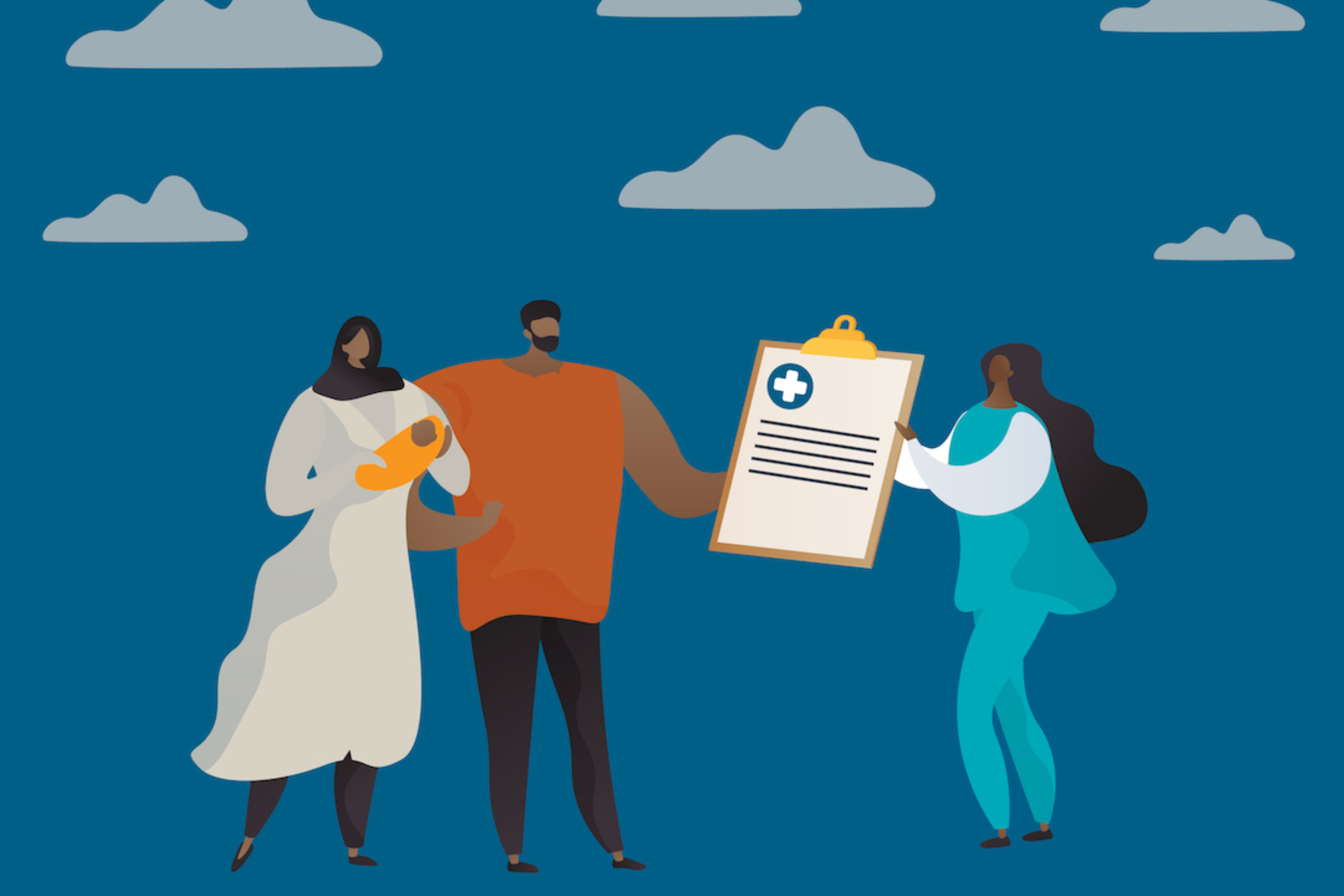In Austin, collaborative efforts by students and clinicians mean those seeking asylum in the U.S. now have better access to consistent, high-quality forensic medical exams. At the same time, the students involved are gaining important leadership experience.

People seeking asylum or other relief in the U.S. are nearly twice as likely to get it when a forensic medical examination corroborates accounts of physical and psychological trauma — but doctors who offer these exams can be hard to find or charge high fees, or both.
In Austin, that’s beginning to change: This year, students at Dell Medical School at The University of Texas at Austin built a hub for physicians able to perform pro bono exams. In less than a year since standing up the ongoing effort, titled the Dell Med Human Rights Program, more than a dozen people seeking asylum have had exams with participating physicians. The students organized training for a cohort of nearly two dozen physicians now prepared to perform the examinations free of charge.
“Doctors use their skills for this objective physical exam to present the evidence in court,” says Scott Spivey Provencio, fourth-year medical student who co-led the work with classmates Hannah Rashdan, Cynthia Sani and John Saxton. “With an affidavit signed by a physician like this, their chances of winning asylum in the U.S. goes up to 90%, and with that relief comes more access to needed services.”
Medical Students Learning Leadership
The student-led effort was undertaken as part of Dell Med’s unique Growth Year, which gives third-year medical students time and opportunities to collaborate with campus colleagues and community partners to improve health. In this case, the Dell Med Human Rights program collaborated with Central Texas nonprofit American Gateways to build a pathway for individuals seeking exams.
“Interprofessional collaboration is a cornerstone of high quality, equitable, and safe patient care and outcomes,” says John Luk, M.D., Dell Med’s assistant dean of interprofessional integration. “As an important service-learning opportunity, Dell Med students build bridges into our community to address health challenges and to lift up our community and its members in support of a vital and inclusive health ecosystem.”
A Different Side of Care
While exams are performed solely by licensed physicians, the effort is the result of leadership efforts by students in both medicine and social work collaborating with faculty members from Dell Med alongside attorneys from UT’s School of Law. And for a physician like Alba Lara, M.D., who has been performing these exams for years, the landscape shift is clear.
“Prior to this, it was just a matter of who a person or their attorney or caseworker knew. But a program like this creates a unified body of people willing to do this work,” says Lara, also an alumna of Dell Med’s psychiatry residency program. “The fact that it’s at an academic center is important — there’s an implied quality and standardization where we’ve screened for people with experience. Other academic centers have similar collaborations, and it’s great to see this coming to fruition here.”
This spring, the students hosted a comprehensive training day for attending physicians to learn how to perform forensic medical exams. Though functionally similar to a standard medical or psychiatric exam, a forensic exam has unique nuances.
“These people almost always have trauma, and that’s usually why they’re being evaluated — they have physical scarring or psychological symptoms or both, and so you have to have some sort of trauma-informed sensitivity,” Lara says. “But that leads to another really important thing, which is that you do not have a treatment relationship with these folks. It’s a completely objective account of whether symptoms are consistent with their story — not an opinion on whether you think they’re telling the truth or should be awarded asylum.”
While there’s no formal certification required for a physician to perform a forensic exam, the students used resources from Physicians for Human Rights and the Society of Asylum Medicine to help physicians get trained and practice with standardized patient encounters. As the effort continues at Dell Med, the number of physicians able to assist with exams will grow with future trainings.
“We do pro bono immigration work because people are fleeing from torture and abuse, and they don’t have resources to pay for attorneys and doctors,” says Annabel Canchola Watson, staff attorney at American Gateways. “It’s not uncommon that people have to go to court without a forensic exam because we can’t find someone to do it, so a program like this opens a lot of doors for us and for people seeking safety here.”